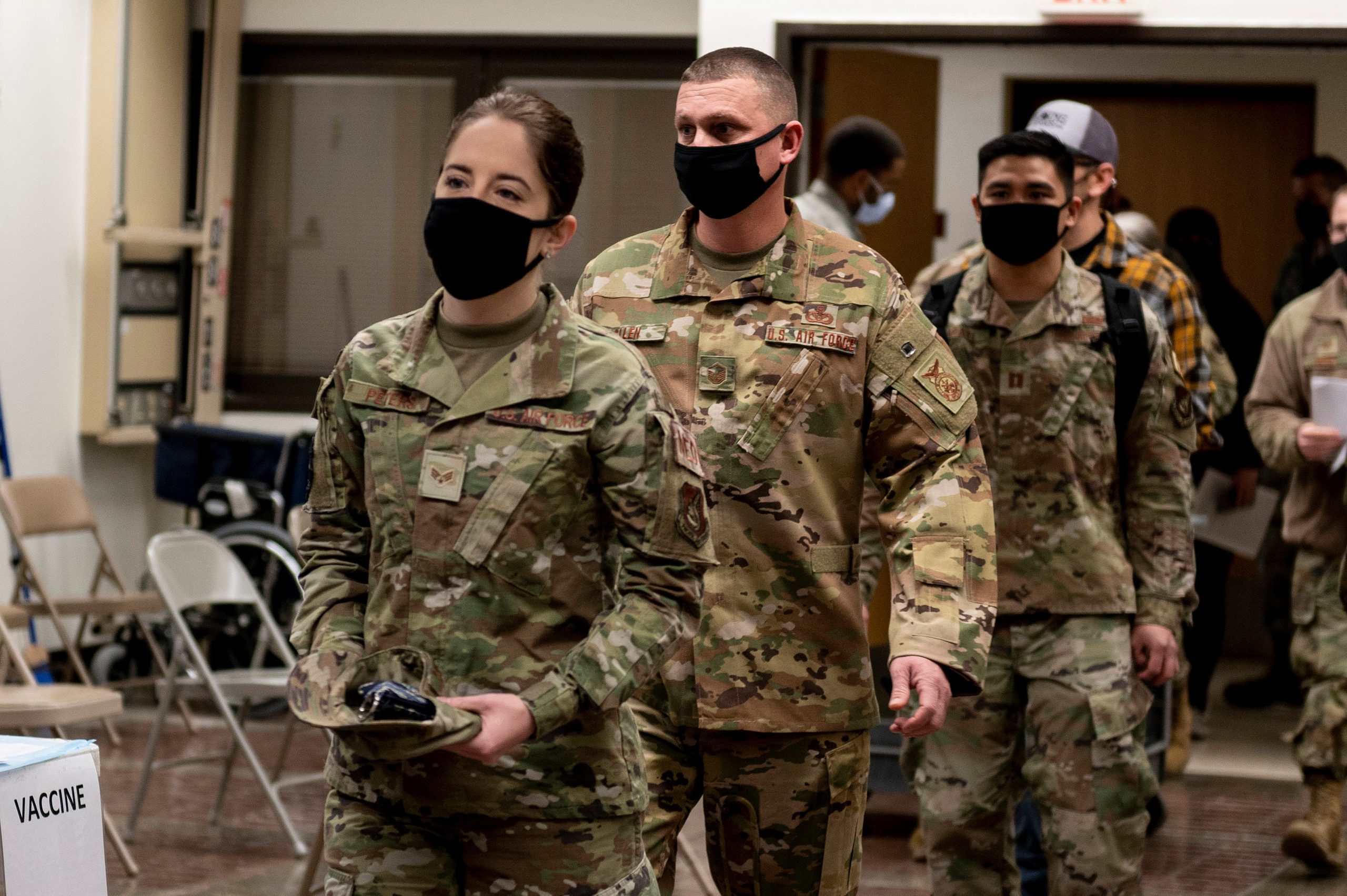
United States Forces Korea/Getty Images
- Getting COVID-19 doesn't guarantee protection from reinfection.
- In one study, around 10% of Marine recruits who previously had COVID-19 were reinfected.
- Those who had antibodies were about five times less likely to get infected than those who didn't have them.
- See more stories on Insider's business page.
A positive COVID-19 test comes with a tenuous silver lining: you're protected from the coronavirus, at least for a few months.
But recent research, out today in The Lancet Respiratory Medicine, has found protection from reinfection is not a sure thing.
An observational study of more than 3,000 healthy US Marine recruits revealed that it's possible for young people to get COVID-19 twice, although those who have had it before have a lower risk of infection.
Around 10% of recruits who previously had COVID-19 were reinfected during a six-week observation period. In comparison, 50% of recruits who had not been previously infected tested positive during the study.
The crowded living conditions of the military bases where the observations took place likely contributed to a higher overall infection rate, but the study authors said the risk of reinfection applies to young people everywhere.
Antibodies provide some protection
Among the recruits - mostly men aged 18-20 - 189 entered the study seropositive, meaning they were previously infected with the coronavirus and had antibodies in their blood.
Most people have an antibody response to infection, where the immune system produces proteins to fight off specific intruders if they return in the future. Antibodies may wane in the months after infection, but the immune system has other protective measures in place.
Commander Andrew Letizia, an infectious disease physician and lead researcher on the study, told Insider the team measured antibodies as proof of previous infection. However, he said some recruits previously tested positive but no longer had detectable antibodies at the time of the study, so the 10% reinfection rate may be an underestimate.
Those who were reinfected with COVID-19 had lower antibody levels compared to those who were previously sick and did not get reinfected.
"Antibodies are certainly protective, but they do not mean that you're going to be bulletproof," Letizia said. "You can still potentially get reinfected."
Reinfection is about one-fifth as likely as a new infection
Based on the study of Marine recruits, the authors concluded that young people who have antibodies are about five times less likely to get infected than those who do not have antibodies. Studies in other populations have produced similar findings.
A preprint study of British healthcare workers, which has not yet been reviewed, found those who had not been previously infected with COVID-19 had a five times higher risk of being infected compared to people who had a past infection.
A study of 4 million people in Denmark found that COVID-19 infection afforded people under the age of 65 around 80% protective immunity after six months. Older people were only 47% protected from reinfection.
